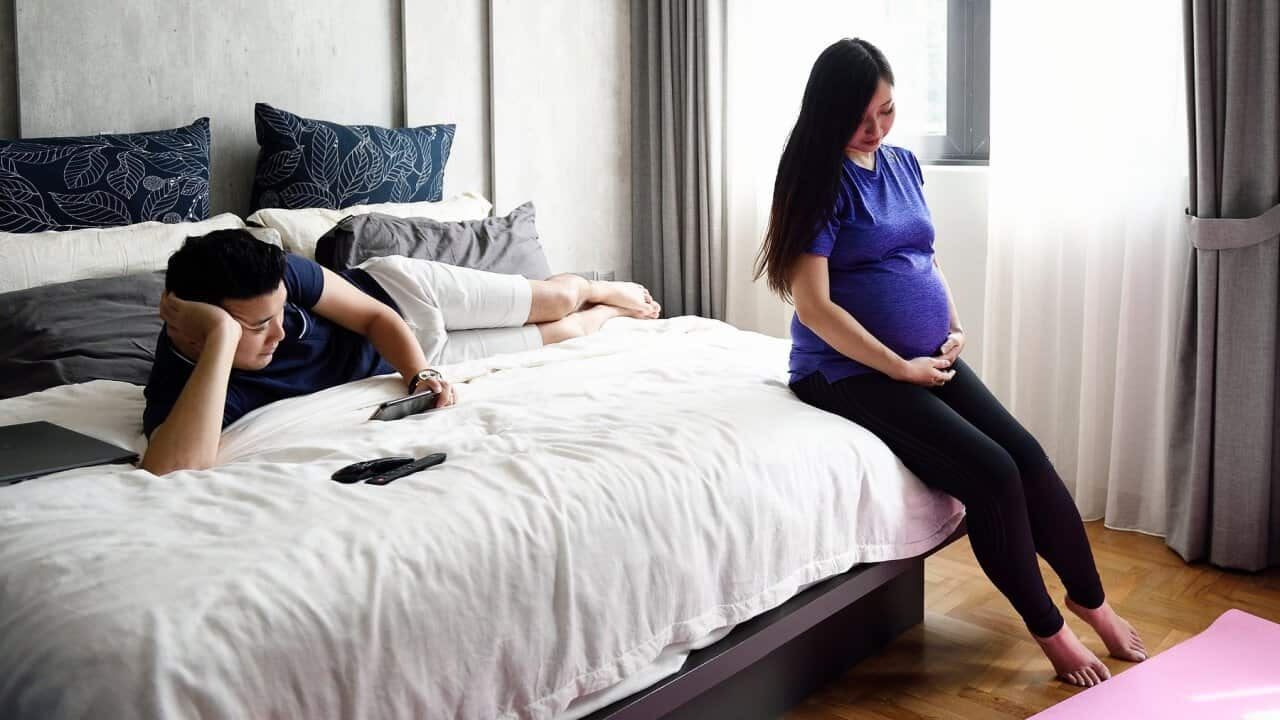"The most struggle I had was mentally. As soon as I put my baby, I was crying so hard.”
The first couple of nights after her pregnancy, new mum Giselle Hernandez says she didn’t feel the love that everyone would picture it out to be as a first time mum.
“You’re emotional, you’re distressed, you include this pandemic, you get lonely especially.”
According to Perinatal Anxiety and Depression Australia Chairperson Nicki Batagol, new data from PANDA reveals that the number of new parents calling the Helpline has more than doubled during the pandemic.
“2020 has been a challenging time for everyone. With the challenges, having a new baby is complex enough.”
What is perinatal anxiety and depression?
Ms Batagol says both women and men can experience perinatal mental health issues (during pregnancy and the year after).
While it is normal to experience a degree of anxiety and ‘ups and downs’ when expecting a baby, some people develop a more pronounced anxiety or lower mood (depression) which affects their daily life and functioning.
Symptoms
She adds symptoms may be different from every person but here are some common ones:
- Panic attacks (a racing heart, palpitations, shortness of breath, shaking or feeling physically ‘detached’ from your surroundings)
- Persistent, generalised worry, often focused on fears for the health or wellbeing of the baby
- The development of obsessive or compulsive behaviours
- Abrupt moods wings
- Feeling constantly sad, low, or crying for no obvious reason
- Being nervous, ’on edge’, or panicky
Treatment and Support
Ms Batagol says there are treatments, supports and services available to help new parents get through the experience.
"If you are struggling, that's okay but you’re not going to get better if you don’t seek help. Reach out and get some help. You don’t need to suffer on your own."
If symptoms last for more than two weeks, she adds it’s time to seek support.
This Perinatal Anxiety & Depression Action Week (8th – 14th November), PANDA is encouraging expecting and new parents to ‘Tell Someone Who Cares’ and reach out for support if they are struggling to find help or understand their experience.





